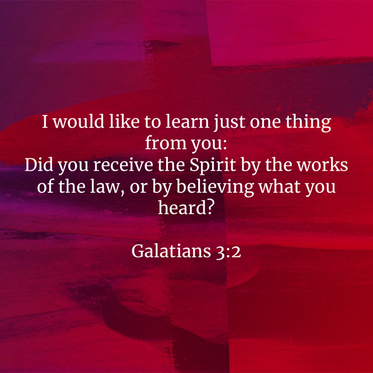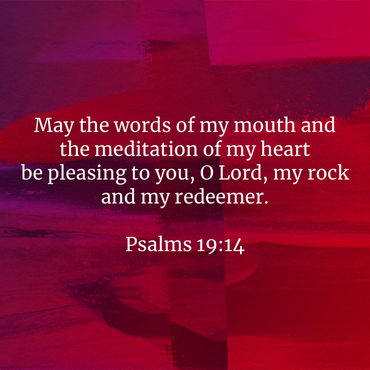|
Good morning!
We are so glad you decided to join us today!
When we meet in person, we share our joys and concerns together. Take some time to consider the last week. If you have any prayer requests, you can add them as a comment to this post. When you are ready, use the prayer below (source) to get started.
Father, Son, and Holy Spirit, holy is your word. Perfect are your ways. Let us be blessed by your word today as we mediate on your precepts. Your promises are true. Your word is faithful. Let us walk in the path of your word today. We pray the words of our mouths come from YOUR truth. Let our thoughts be governed by YOUR commandments. Please bless this day as we seek to dwell in your word today. Amen.
Today's lesson is on Joel 2:21-27.
There are three chapters to book of Joel. Joel directed his prophetic message to the people of Judah and the city of Jerusalem. The book opens by describing a plague of insects that destroyed the crops of Judah. The once fruitful land of Judah became barren by the destructive insects. Because of the land's desolation, the people of Judah lived in famine and in want. Joel interpreted the destruction as the consequences of Judah's sin, and he called his audience to return to the Lord and repent.
The Lord saw the turmoil in the land and the suffering of his people. Through the people had sinned, he had compassion for them. The Lord was “jealous of his land” and showed “pity” on his people. He demonstrated his care by promising his people renewed sustenance and protection from foreign enemies. His renewal would cause his people and their land to prosper. Because of his compassion, his greatness would be on display for his people and the whole world. God had done great things for the people as they came out of bondage in Egypt. God would continue to do for his people and their land. Joel described how the beast of the field moan and pant because of the destruction of their habitats. Fire, drought and swarms of insects had destroyed the land; the pastures and the fields have laid in waste. The land was uninhabitable for all of creation. However, the Lord's great work of Restoration would come to the creatures of the land – they have no reason to fear. The Lord's restoration of the wilderness reflects the connectedness among God's creation. Only a fruitful land can sustain animals livestock and humans. Centuries later, Jesus taught that God provides for all his creation, even the smallest animals. Previously, vines were wasted and dried up, while the bark of the fig trees were stripped, leaving the trees to decay. However, the land's restoration brought renewed provision for the people. A fruitful vine and fig tree showed that the people lived in safety and flourished. An ideal and good land easily supported grapevines and fig trees. The agricultural renewal would bring about a settled population and would mark the end of the season of destruction. Because of the Lord's restoration, the people would experience joy and gladness, feelings that were lost because of the turmoil. God showed his righteousness and justice to his people by allowing the return of the rains, thus bringing an end to the drought. When the people returned to God, his justice would be fulfilled, and he would show compassion. By promising a return to consistent rainy seasons, God showed he is faithful to care for people and their land. He would treat his people rightly, as his justice poured down on the people and led into salvation, The people would see tangible examples of the Lord's blessings. The restoration followed God's history of working wonders for his people. Though the people experience harsh and dehumanizing treatment while living as slaves in Egypt, God dealt miraculously with the Egyptians to free his people. God demonstrated his covenant love to his people – despite their sinfulness- though marvelously kind ways. At the center of the relationship between God and the people was the reality that God was present and active in their midst. When their suffering was reversed and they saw the renewal of their land, they would know that God was present as he promised. The uniqueness of this relationship was exclusivity. No other god could rightly claim Israel's allegiance and worship. God's presence with his people led to their rejoicing for his mercies. The people were to live without fear of being shamed, because the King of Israel was in their midst.
Conclusion
A plague of destruction insects with the accompanying feelings of terror might be incomprehensible to modern audiences. Therefore, the feelings of joy from God's promised renewal might seem equally as foreign. However, modern audiences of Joel's prophecy can take away two applications. First, the text serves as an ancient reminder regarding a present reality; the importance of maintaining hope during seasons of suffering, Joel's words, directed to a people in the midst of hardship, reoriented their expectations. Disaster and shame changed to flourishing and celebration, all because of God's great work of renewal. Joel promised the people that hope was possible in the midst of disaster and suffering. Although sin brings consequences, God will not ignore or disregard his people. Instead, God can bring joy to replace sorrow. His timetable may not be ours and he may not immediately bring joy or fix our suffering. However, his people can take comfort in knowing his presence. Second, this passage serves as a reminder of God's promises to renew all creation. Joel promised that not only would the people be restored, but creation – the land and the animals - would also be restored. God's plan of restoration is not only focused on the spiritual realm but also the physical realm. All things – spiritual and physical - belong to the God who created them. Joel calls us to embrace all aspects of God's restoration and renewal. As a result, God's people of all eras can celebration his presence in their midst. Prayer Heavenly Father, we trust that you will bring restoration to our world, despite our sinful actions and inactions. Renew us so that we might better follow and praise you. Show us how to live as your people, free from shame. In Jesus' name. Amen. Questions:
Benediction
This week's benediction is from the World Messianic Bible.
Next week's lesson will be on 1 Corinthians 1:18-31.
0 Comments
Leave a Reply. |
AuthorWe are a small, rural Presbyterian church in southwestern Pennsylvania. Archives
July 2024
Categories
All
|



 RSS Feed
RSS Feed